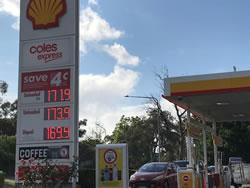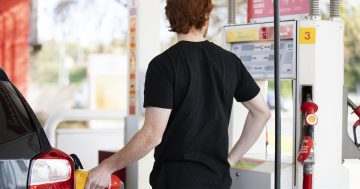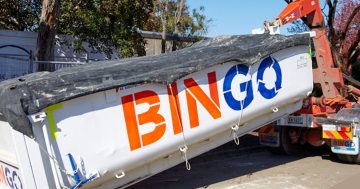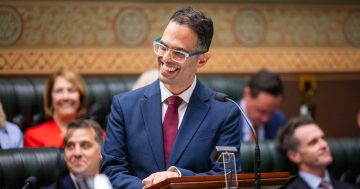Global oil markets are volatile at the moment, and petrol prices are steadily rising, Gareth Hutchens* discusses what will happen to prices in Australia this holiday season?
 Petrol prices are soaring. We’ve seen petrol hit record highs in recent months, and they could go higher from here.
Petrol prices are soaring. We’ve seen petrol hit record highs in recent months, and they could go higher from here.
What’s causing the price rises, and will there be any relief for motorists this holiday season?
What’s happening to fuel prices?
Analysts say a couple of things have been driving prices higher.
First, with global economies emerging from lockdowns and transportation and manufacturing picking up, demand for fuel has picked up around the world.
Second, the global supply of oil has not been keeping pace with the surging demand — and it’s deliberate.
The Organisation of the Petroleum Exporting Countries (OPEC) and its allies, collectively called OPEC+, are restricting oil supplies at the moment.
Last year, the global economy experienced a hugely damaging and expensive bout of oil oversupply when demand plummeted during the original lockdowns.
The oil cartel says it doesn’t want that to happen again.
It says it isn’t producing too much oil at the moment because there’s a chance that further COVID outbreaks could derail the already fragile global recovery, and that would undermine global oil demand again.
Coincidentally, its decision to restrict supply at the moment happens to be quite profitable for the group’s members.
Where are fuel prices heading?
Prices could remain near these elevated levels for some time.
According to online aggregator FuelPrice Australia, the average price for 98 Octane currently sits at $2.08 per litre in Queensland, $2.05 in Melbourne, and $1.82 in Sydney.
For Unleaded 91, the average price is currently $1.86 per litre in Brisbane, $1.81 in Melbourne and $1.60 in Sydney (although there’s large variation within cities).
The data in the below graph comes from the Bureau of Statistics.
It shows the trajectory of 98 Octane prices since April last year (when prices began recovering from the first lockdowns) until the end of the September quarter this year.
When the ABS releases its December quarter data (due on 25 January), they will show prices have risen even higher since then.
Average price of unleaded petrol (98 octane), cents per litre
Fuel prices rose 36 per cent from the lows seen in mid-2020 to the end of the September quarter 2021
However, notice how nominal petrol prices (the blue line) have doubled since the late 1990s, but the real cost of petrol (the red line) hit 22-year lows last financial year (when taking inflation into account).
Real prices are shown in 2020–21 dollars.
So even though nominal prices have climbed significantly in recent months, if the real cost of petrol is also rising it will be rising from a relatively cheap point.
What good does that do?
Of course, many people would feel like they weren’t able to take full advantage of the low cost of petrol in 2020-21, given the restrictions on their movement.
It also won’t help to know that we’re heading into the holiday season, where many people are planning to holiday domestically this year, when nominal prices have been hitting record highs.
Mr Khoury said he would like to see prices come back a bit, especially given the fall in the price of Mogas 95 in Singapore.
“Hopefully the worst is behind us,” he said.
“I say ‘hopefully’ because you just don’t know what’s going to happen in global markets at the moment, it’s so volatile.
“We need to see how much shale production is going to increase in the United States, and how OPEC responds to that, and we need to see how much supply OPEC adds to global markets in coming months,” he said.
Which brings us to the next point.
Is there any relief on the horizon?
Officials from the oil cartel OPEC+ have been slowly increasing oil production on a monthly schedule.
Every month, they’ve been adding an extra 400,000 barrels per day (bpd) to global supply, on top of the increases from previous months.
Since August, the cartel has added 2 million bpd to global supply.
Countries such as the United States have been asking the cartel to increase supply much faster to cool global energy prices, but the cartel has resisted the pressure (so far).
It says it doesn’t want to increase supply too quickly in case further COVID outbreaks in Europe or Asia derail demand again and throw oil prices into turmoil again.
OPEC+ will hold its next monthly meeting on December 2, where it’s expected to confirm its schedule of boosting monthly supply by another 400,000 bpd in January.
What about US oil reserves?
This week, the United States, India, China, South Korea and the United Kingdom said they would release 70 million barrels from their strategic oil stockpiles in a bid to push prices lower.
But the announcement was a fizzer.
Looking at the details, the amount of oil will be a drop in the ocean.
The US said it would release 50 million barrels, which accounted for the majority of the oil to be released.
But 18 million of those barrels were just accelerated pre-approved sales, and its remaining 32 million barrels were being offered in the form of an exchange.
“The bids for the US oil barrels up for exchange close December 6,” said Commonwealth Bank commodities analyst Vivek Dhar.
“Those who are successful will likely receive oil from late December to April, but these buyers will have to return that oil between 2022 and 2024.
“The US is unlikely to immediately provide relief to domestic oil markets.
That’s especially true given that sour (high sulphur) grades are being released, most of which will likely be exported to refiners in China and India.”
Outside of the US, China is only expected to release 7.3 million barrels, and India will release 5 million.
The UK plans to release 1.5 million barrels, and Japan will release several days’ worth.
Mr Dhar said markets were underwhelmed by the announcement, with global prices actually rising afterwards.
“Market attention is now firmly turned towards the OPEC+ reaction,” he said.
“Now adding the release of strategic oil stockpiles to the mix, there’s certainly a case to be made for OPEC+ to defer adding supply.”
*Gareth Hutchens is a business and economics reporter with the ABC, based in Canberra.
This article first appeared at abc.net.au.











